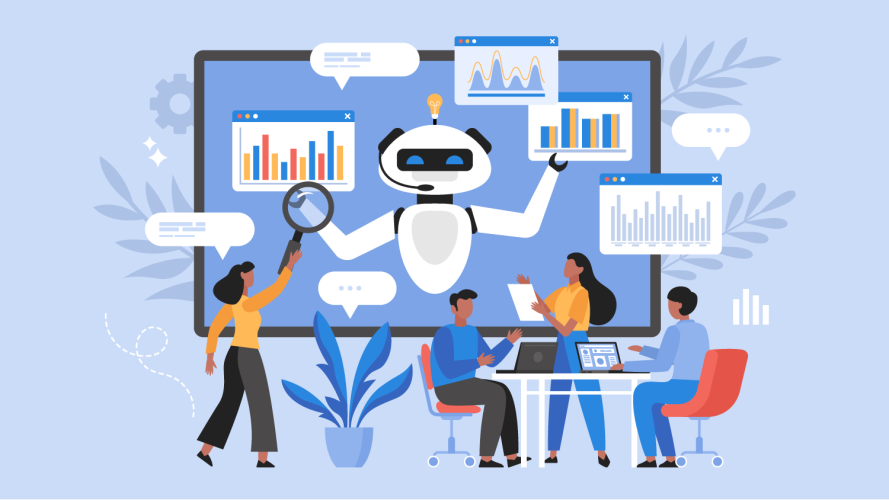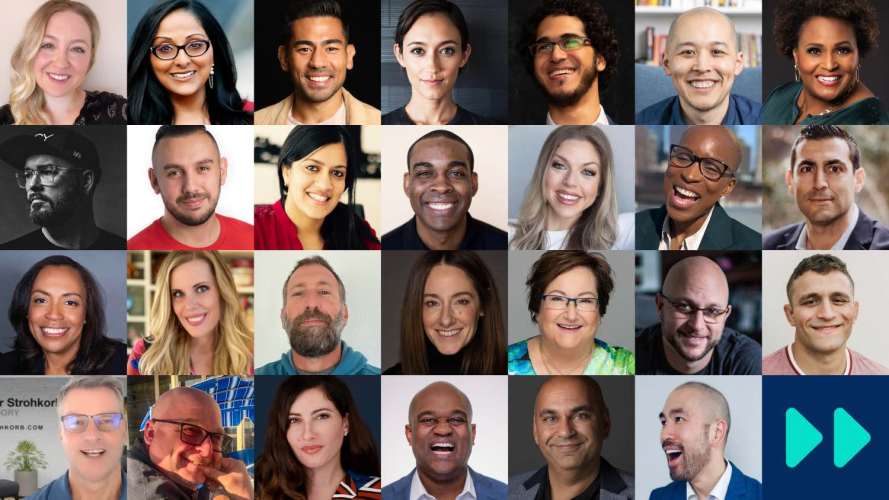Skills vs. Degrees: How Technology Can Eliminate the Education Wealth Gap



Panels during 2021's World Economic Forum highlighted how online learning can help people gain skills to get ahead in work and life.

Ari Bendersky
For decades, the path to success was largely tied to a degree from a pricey four-year college or university, creating a serious wealth and prosperity gap. But now, a surge in online learning during the pandemic has shown we can close the educational wealth disparity.
During the virtual World Economic Forum (WEF) this year, an event that normally brings together the world’s big thinkers in Davos, Switzerland, several panel discussions centered around skilling and reskilling the global workforce. The panels also tackled how technology is helping accelerate digital learning to close the skills gap. With digital transparency, equity may finally move into the global classroom.
In 2020, the WEF launched the Reskilling Revolution Initiative with the goal of helping one billion people obtain better skills and jobs by 2030. Lofty goal? Maybe, but the initiative has already trained and educated 50 million people in 10 countries in just one year. This plan already has enough trajectory that WEF’s managing director, Saadia Zahidi, says it could add $6.5 trillion to the global economy in the next 10 years.
There’s certainly a need for it, considering blue-collar jobs continue to decline as tech-focused and tech-adjacent jobs climb. In fact, LinkedIn CEO Ryan Roslansky said at the WEF that demand for 150 million new tech jobs in artificial intelligence (AI), information technology (IT), product management, software development, will rise in the next five years due to increased digitization in the global economy. This shows a great need to educate and re-educate people from disparate backgrounds like customer service, retail, hospitality, and more. Even sectors like healthcare and, yes, education will have increased digitization.
Skills = currency
Whether you worked as a bartender or in retail, you already have skills that transfer into sales or customer service, Roslansky said. “A food server has 71% of the skills you would need to transition into something like a customer service role,” he adds. “Similarly, a bartender has about 47% of the skills you need to move into a sales role. It’s not just about the jobs. It’s about the skills required for the jobs. Skills are the currency. Now it’s easier than ever to acquire those skills.”
Online learning platforms like LinkedIn Learning, Pearson, Edraak, Coursera, Udemy, Skillshare, and more offer access to in-demand skills at a fraction of the cost. Now people can attain specific skills whenever, wherever, and however they want. This is opening doors to people all over the world to gain access to skills that can lead to more economic opportunities. One could also argue that, because of this greater access, high-quality talent need not reside in the same city as your business. The work-from-anywhere model unlocks new growth opportunities and productivity.
“Employers have an opportunity to transcend traditional boundaries and tap into new pools of talent to build a more innovative, diverse, and inclusive workforce,” said Salesforce president and chief people officer Brent Hyder in a post he penned for the WEF. “By building a talent strategy without traditional boundaries like location, companies can broaden their search beyond urban centers and welcome untapped talent from new communities and geographies.”
Marginalized people gaining more access
The reskilling revolution aims to help people in marginalized communities around the world by giving them access to technology and education, which leads to better skills. Lady Mariéme Jamme, founder and CEO of iamtheCODE (an African-led coalition to advance STEAMD — science, technology, engineering, art, math, design — education for women and girls), calls this the new oil during the WEF. Jamme says you can’t move forward in life if you don’t have the right skills. You then can’t get a job, which can lead to depression and a lack of dignity. Someone gave her a chance as a teenager, and now she pays that generosity forward by working with marginalized girls and boys.
“I am here because someone gave me the skills as a young woman,” said Jamme, who didn’t learn the alphabet until 16, but was then coding by 20 and has since mastered seven coding languages. “When my voice is heard, the voice of young marginalized girls will be heard.”
Currently, 3.6 billion people globally don’t have internet access. That has to change, but can’t be done without the help of the private sector. Digital technology can help bridge the technological divide, according to Hans Vestberg, chairman and CEO of Verizon Communications.
“The opportunity is obvious: We can now accelerate an inclusive world by using digital in a way we’ve never done before, because we have proven these tools are working,” Vestberg said during the WEF. “The risk is we are accelerating the divide in our society and we have more people behind — especially vulnerable groups.”
Micro-degrees help turn soft skills into hard skills
Micro-degrees, super-focused online degrees in a specific area of study, can help bridge that divide. Instead of adding to the $1.7 trillion currently owed in student debt, people now can quickly earn more focused degrees that can lead to new jobs in specified fields, like IT. In addition, those micro-degrees also can help propel people within industries where they already work or open a door if they have lost a job. Salesforce’s Trailhead, among other learning platforms that offer shorter-term coursework to achieve certification or accreditation, helps people skill up.
While technology has the potential to increase inequality, it can be (and is) a great equalizer in giving access to people from all walks of life. During the pandemic, white-collar workers more easily shifted to working from home. Blue-collar workers, however, more regularly got put at risk working the frontlines. This disparity between low and more highly skilled workers can serve as the impetus to reframe the post-pandemic recovery from K-shaped, which further divides people, to one that offers more opportunities to lift up workers with transferable soft skills.
“The opportunity here is to rethink the way we’re providing skills,” said Andrew McAfee, co-director and co-founder, MIT Initiative on the Digital Economy; principal research scientist, Massachusetts Institute of Technology (MIT). “In particular, in a lot of cases, to use the technology itself to be part of the reskilling revolution.”
People want to learn new skills. Governments and businesses have the tools and responsibility to help teach them. If they don’t, too many people can get left behind. It doesn’t have to be that way.
Gain New Skills
Salesforce’s Trialhead is the fun platform to gain new skills that help level-up your current job … or get a new one.


























